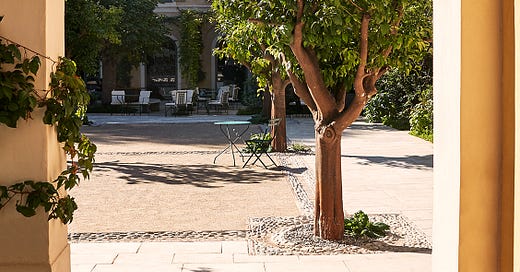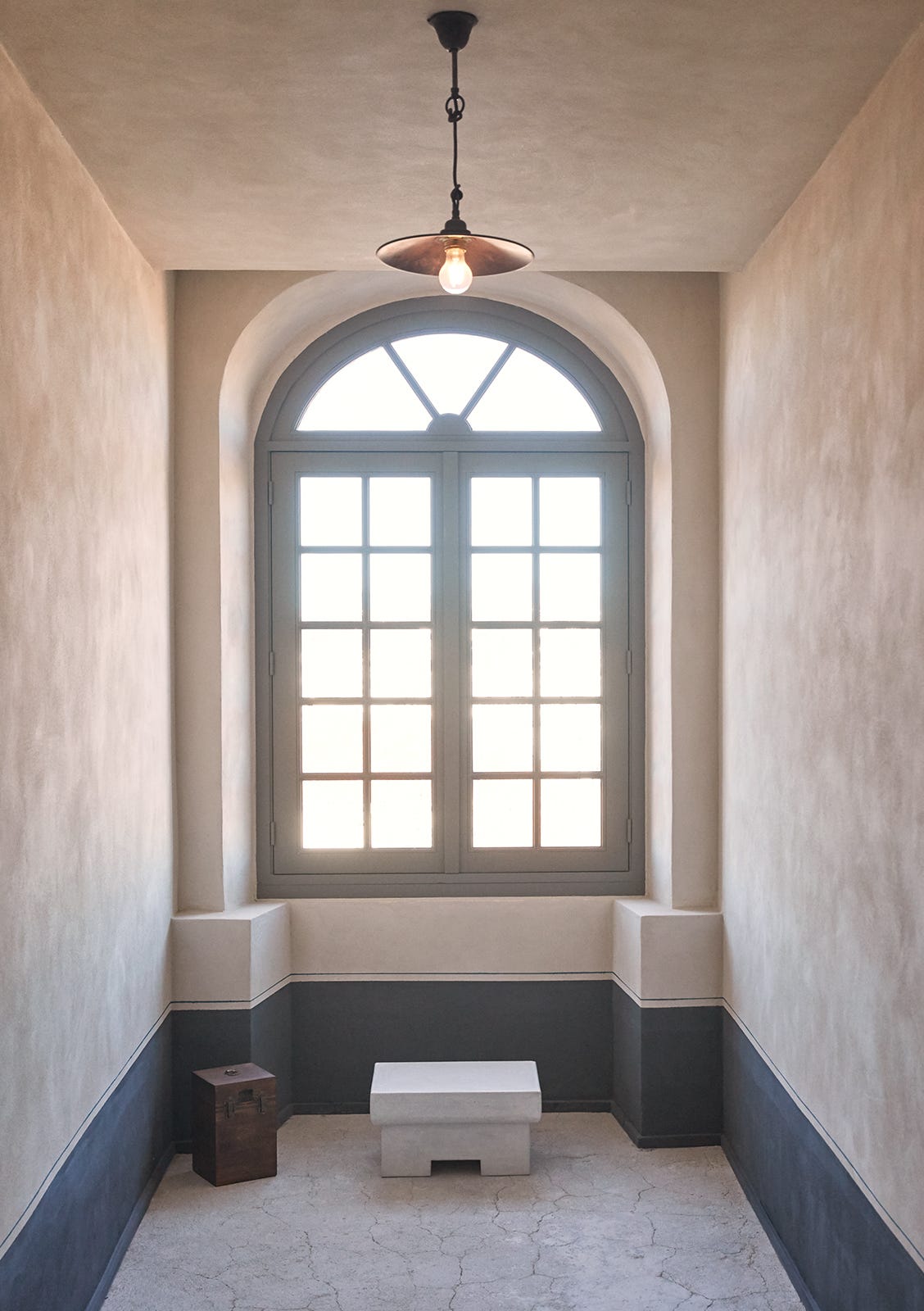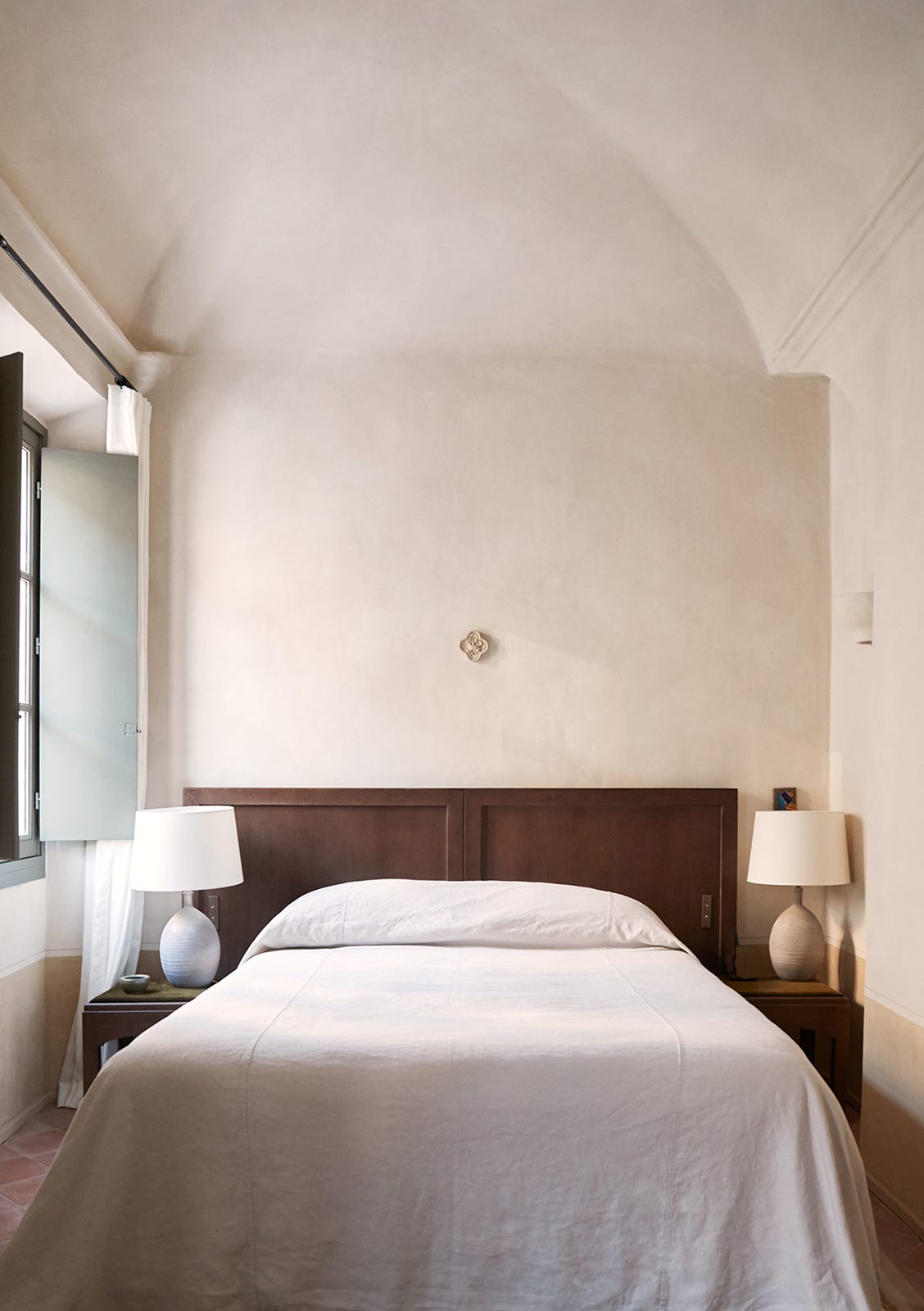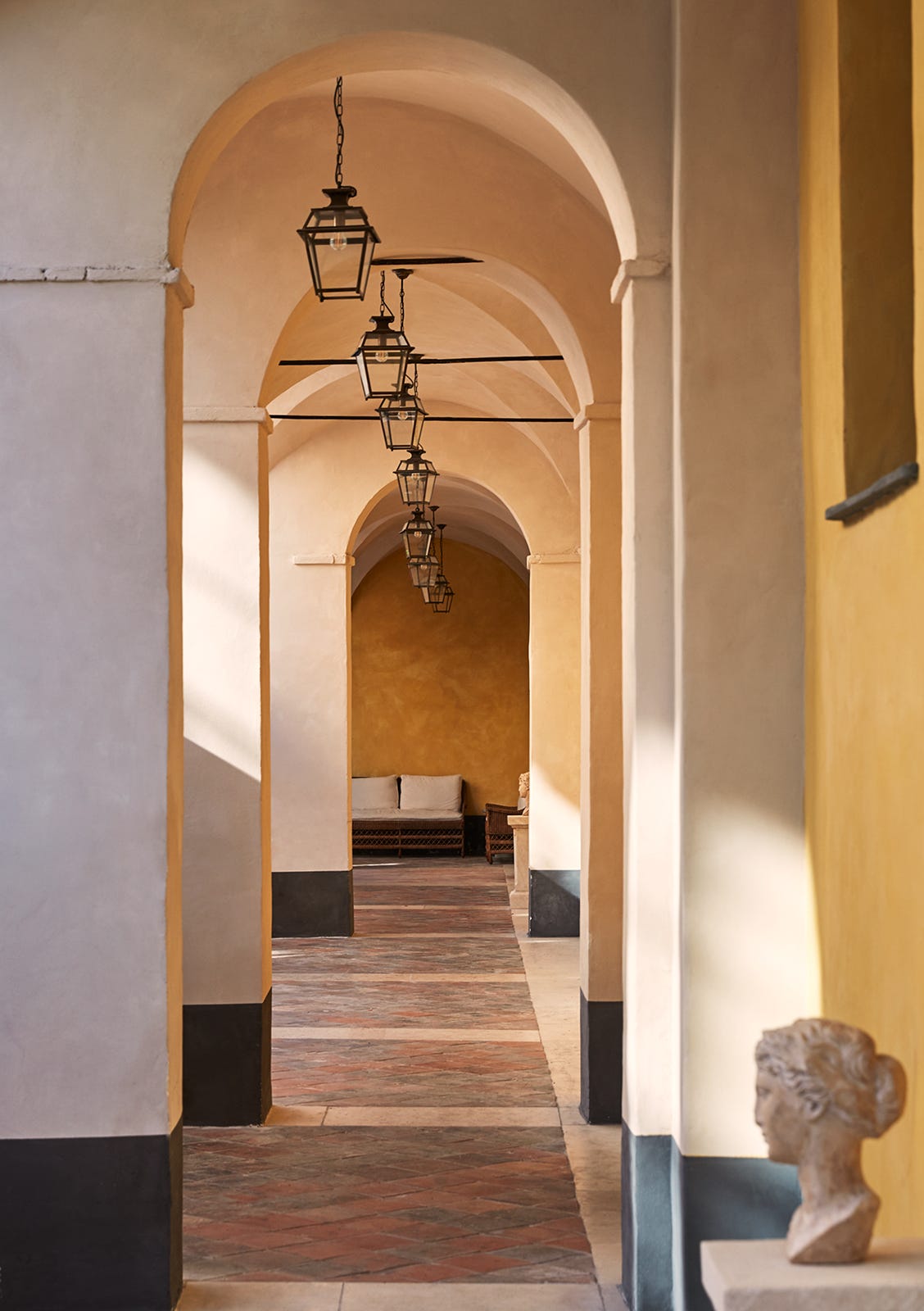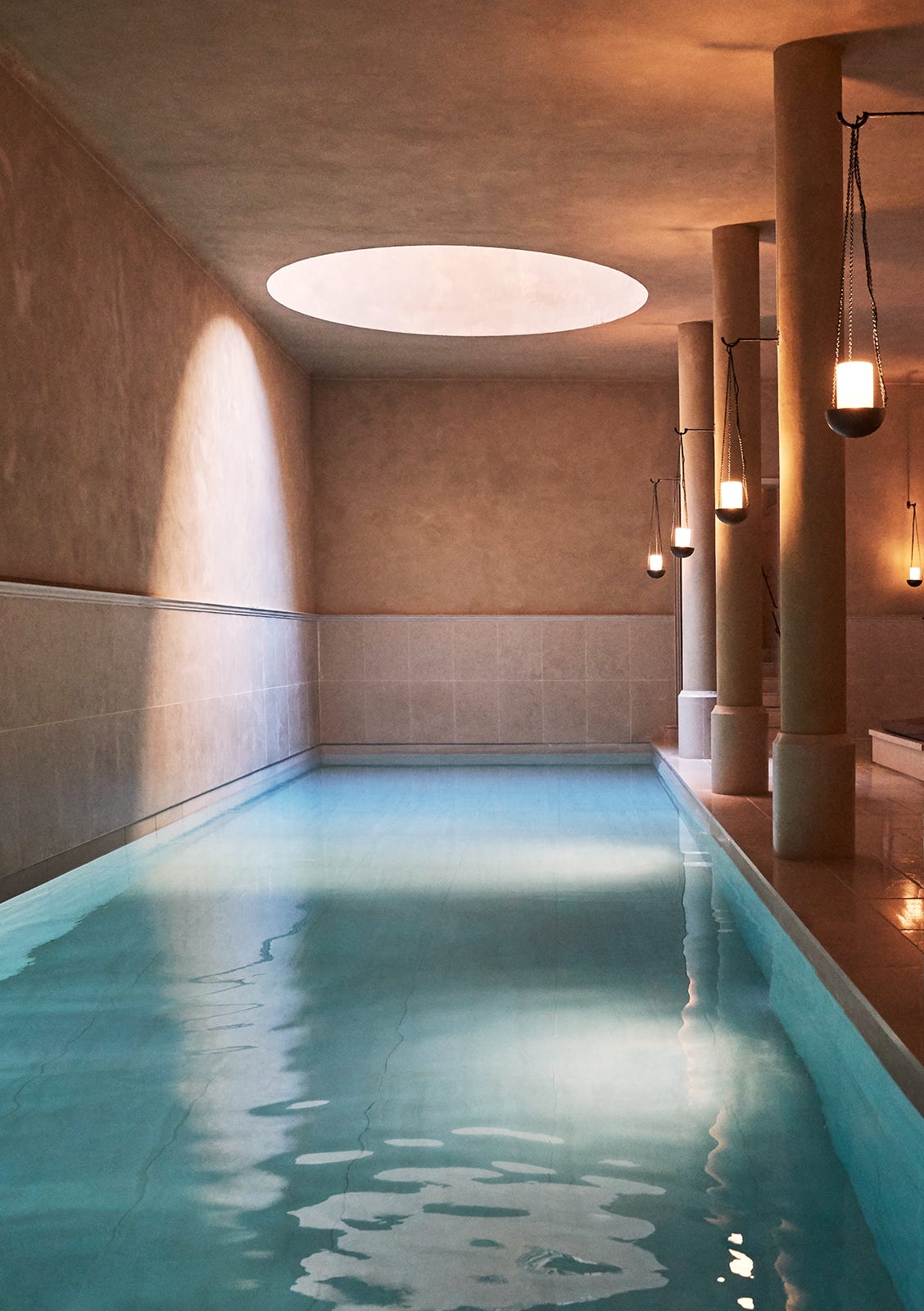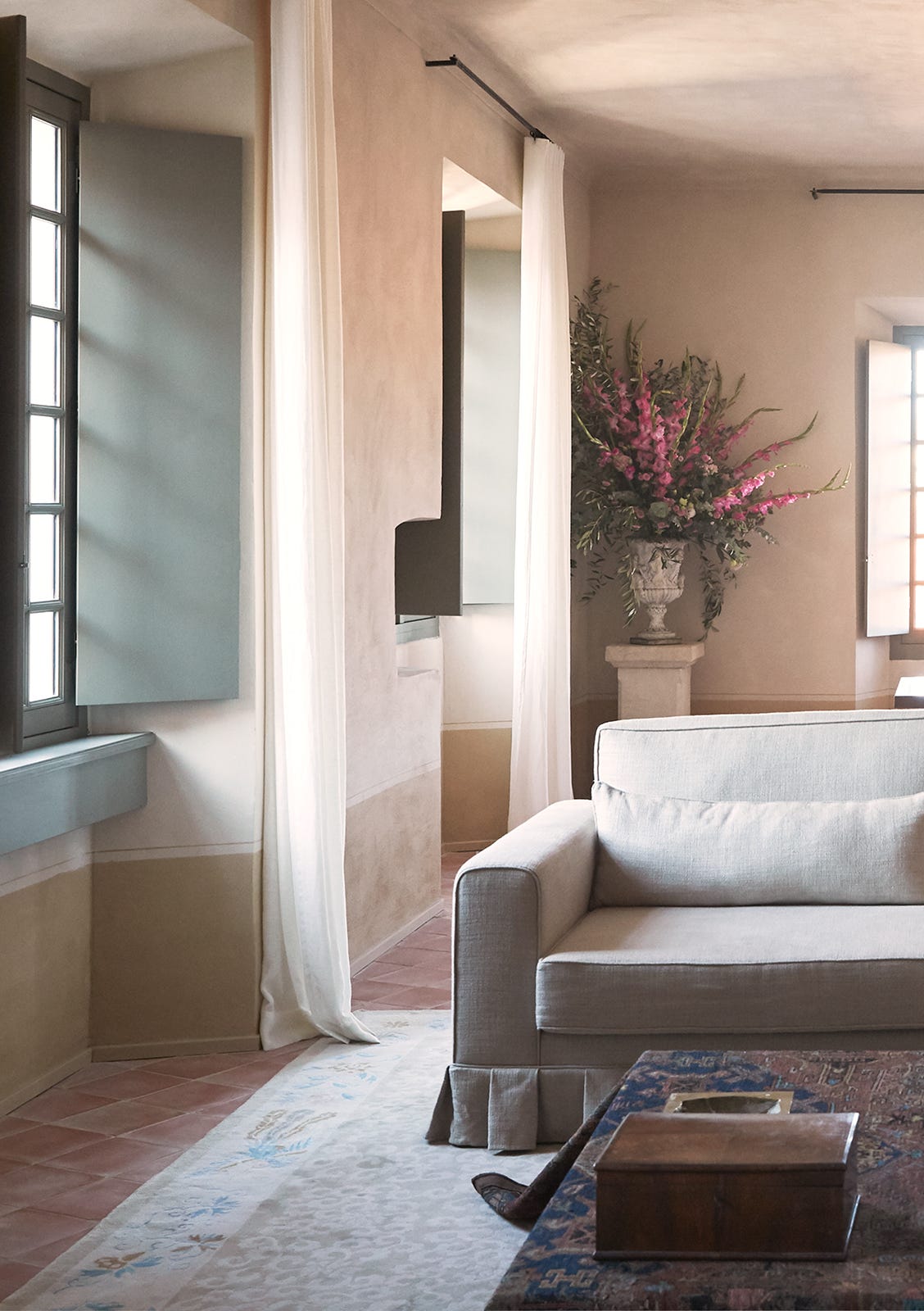Sous le Soleil Exactement / Hôtel de Couvent in Nice
Formerly a place where nuns spent a life of worship, Hôtel de Couvent is housed in a 400-year-old convent in Nice’s old town, transformed into a tranquil oasis, complete with its own bakery, vegetable
Except for Le Negresco, Nice has never been a place you visit because of its beautiful hotels but rather the opposite, you went there despite what the hotels were like. For this reason, the opening of Hôtel du Couvent (in the summer of 2024), in the 400-year-old nunnery formerly known as Couvent de la Visitation, and listed in the inventory of Historic Monuments, was highly anticipated.
The former convent has been beautifully transformed into a luxury hotel, with new additions by hyped Studio Mumbai.
The design studio has added a particular architectural detail: the new building’s exterior is decorated with large shutters, a discreet nod to the traditional persiennes de Nice, in this way interconnecting the new with the old.
The main courtyard, home to the restaurant’s terrace, is the natural focus point of the hotel, but there are also other options if you’re feeling peckish. La Guinguette is on one of the garden terraces, and if you want to feel closer to the city, Le Bistrot des Serruriers is just below the hotel.
Want a more exclusive dining experience? Reserve one of the suites, equipped with a full kitchen. Go to the market and buy your own vegetables or have the hotel chef cook you something in the privacy of your own suite. Everything used in the hotel restaurant comes from the hotel’s own farm, only 50 kilometres from Nice.
What is the most important aspect of creating a new hotel? To provide comfort, obviously, and a sense of privacy for guests, but when travelling – leaving one’s home and everyday routines behind, if only for a few days – what most visitors really want is to experience something unexpected and out of the ordinary.
Perhaps for this reason, one of the most popular things to try at the hotel is a meeting with its very own resident herbalist, doctor Grégory Unrein, who (together with his partner, Lili Minniti, a former dancer) also runs his own organic pharmacy, NO – Nice Organic – in the centre of Nice’s old town. Using plants, he helps people heal themselves.
As a tribute to the ancient Roman baths once on this site (you can still see the ruins a stone’s throw away), the hotel offers a beautiful system of thermal baths, in the form of a succession of pools. If you can, go when it rains – the circular opening in the ceiling above one of the pools turns into a temporary waterfall. If you prefer swimming outside, head up to the outdoor pool, at the top of the terraced garden and with a spectacular view of Nice and the sea.
Why would anyone opt for an artificial piscine when you have the beach within walking distance? Perhaps because the Nice beach is famous for its lack of sand, instead covered with thousands of small stones and rocks that you have to cross before you get to the sea. Watching others attempt to reach the ocean without having an accident, slowly and hesitantly putting one step to another, is reminiscent of watching zombies move around in horror movies, their minds all but gone, the only thing remaining a twitching body.
Once in the water everything is great and you forget all about the previous discomfort, until it’s time to get out of the water, and once again have to go through the humiliating zombie walk. Better perhaps to relax by the pool. Alongside the pool are several sunbeds, and as it’s a bit of a trek (and most guests seem to still prefer the actual sea), it’s a great spot if you want to be by yourself for a bit, resting with a good book or just taking a nap in the sunshine.
There are no television sets in the rooms (but there is a yoga mat in the cupboard), which feels both refreshing and contemporary. Who still watches TV anyway these days? Respectively, there are no machines in the gym which is labelled a “movement studio” (with a daily class programme that includes breathwork).
Not in the mood for a workout? Head over to the hotel’s small but extensive library, focused on religion, culture, and fine art (including a special section on l’Ecole de Nice with artists such as Arman, Ben, César, and of course Yves Klein). Outside the library windows is a small courtyard, where the priests of the nearby church sometimes congregate for a smoke break.
The 88 rooms vary in size, all are uniquely decorated by design studio Festen to include vintage pieces, artworks and selected literature. The idea is that it should be possible to work remotely from the hotel, merging work with relaxation in the way that has become increasingly common in the post-pandemic years.
Some rooms are small, converted cells from when nuns lived here. These have a strong sense of serenity and peace, and staying here is like being in a tranquil cocoon. Others – like the larger suites – seem to go on forever, with terraces or even private gardens, perfect also for more intimate events and small celebrations.
Two things help to set the tone. One is the discrete scent of the hotel, the same everywhere except for the thermal baths, which have their own scent (and the Fragonard soap is also different, as well as the Azzi Glasser body wash and shampoo).
Scent is one of those invisible luxuries that can elevate a space without you being able to completely put your finger on what it is, and finding a quality soap in your room is one of the surest signs that you’re staying at a hotel that has put thought into details. The other is the sight of spectacular flower arrangements found throughout the hotel; flowers seem to erupt like hot fire out of volcanoes from large porcelain vases, spreading upwards and outwards. The flower arrangements are made by Mege Pere et fils, a Niçoise institution in the world of flowers, found at Place Pierre Gaultier.
Its dedication to authentic materials, respect for local history, and low-tech attitude makes the hotel appear refreshingly contemporary. This is also a theme that runs through the breakfast, which includes bread and granola from the convent, prepared dishes available à la carte – such as sweet blossom orange omelettes, and avocado from nearby Menton, seasoned with olive oil and fleur de sel – and of course fruit juice and fresh fruit from the hotel garden.
It’s tempting to just stay in the hotel and forget about the rest of the world, and for those who struggle to leave, the hotel provides a service escorting you downtown in a small electric golf car, making the transition slightly easier.


